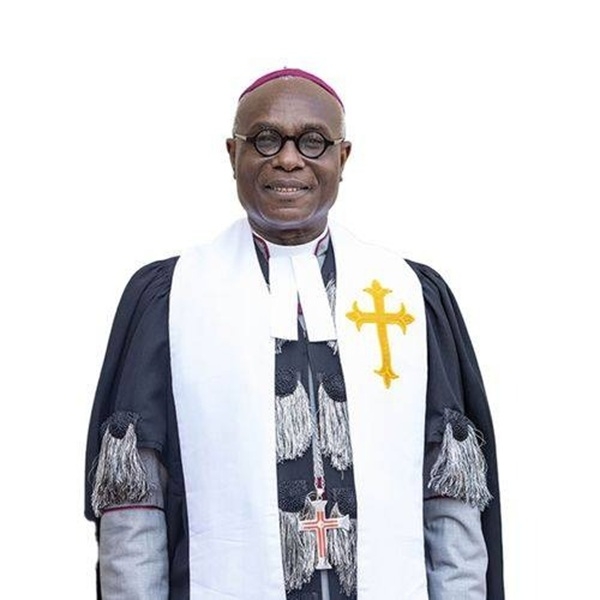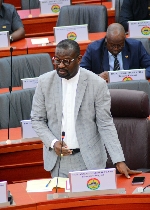Methodist Church Ghana defends Wesley Girls’ High School traditions in ongoing Supreme Court case
 Most Rev’d Prof. Johnson K. Asamoah-Gyadu
Most Rev’d Prof. Johnson K. Asamoah-Gyadu
The Methodist Church of Ghana has issued a detailed statement addressing the ongoing Supreme Court case involving Wesley Girls’ High School (WGHS) and student Shaffe Quosu, amid growing public discussion surrounding the school’s long-standing policies and religious traditions.
In the release signed by the Presiding Bishop and Chairman of the WGHS Board, Most Rev’d Prof. Johnson K. Asamoah-Gyadu, the Church noted that although proceedings are ongoing, it has not yet been officially served with all necessary documents.
However, it is taking steps to obtain full records to respond adequately and defend the interests of WGHS.
The Church emphasised that Wesley Girls’ High School, founded in 1836 by Harriet Wrigley, was established as a Methodist mission school dedicated to moral, spiritual, and academic excellence.
It stated that the school has, for nearly two centuries, welcomed students of diverse backgrounds, including Christians, Muslims, traditionalists, and others, without discrimination.
According to the statement, WGHS’s traditions — such as daily devotions, assemblies, hymn singing, and chaplaincy activities — form part of its identity as a mission school and have shaped its reputation for discipline and excellence.
These traditions, the Church said, are communicated clearly to parents and students during admission.
No discrimination, but a uniform structure is needed. Addressing concerns about religious restrictions, the Methodist Church maintained that it respects every student's constitutional right to practice their faith.
However, it warned that creating separate systems within the school based on religious practices — such as varying eating, sleeping, or worship arrangements — could lead to segregation and disrupt the cohesion that WGHS is known for.
“As student population grows and diversity increases, it becomes even more imperative to maintain a coherent structure that allows all students to live, study, worship, and participate in school life in a manner that is orderly and fair,” the statement read.
National agreement on mission school practices. The Church highlighted that in April 2024, the Conference of Managers of Education Units (COMEU), with support from the National Peace Council, signed a memorandum of understanding (MOU) to guide how mission schools accommodate students of all faiths.
The agreement involved multiple religious groups, including:
• The Methodist Church
• Presbyterian Church
• Catholic Church
• Anglican Church
• Assemblies of God
• Evangelical Presbyterian Church
• Office of the National Chief Imam
• Ahmadiyya Mission
• Salvation Army
• Garrison Education
• Police Education Unit
The Methodist Church said it has fully adhered to the terms of this MOU.
Commitment to Peace and Dialogue The Presiding Bishop welcomed recent supportive statements from the Ghana Catholic Bishops’ Conference, the Christian Council of Ghana, and the Anglican Church, describing them as encouraging during this period.
The Church reassured the public that its Wesleyan heritage “admits of no discrimination whatsoever,” stressing that it remains committed to respect, unity, and sound educational values that date back to its establishment in 1835.
The statement concluded with a pledge to continue engaging all stakeholders to maintain peace, understanding, and mutual respect among people of all faiths and traditions.
Trending News

NMEP sets up expert group to review 2024–2028 malaria elimination strategy
23:38
Abraham Koomson demands firm action to address rising indiscipline in schools
10:11
Gold-for-Reserve: Minority Leader admonishes government to credit Bawumia for game-changer policy
00:31
Credit-depleting metres: Energy Minister visits Ghana Standards Authority energy metre testing laboratory
09:04
DVLA CEO welcomes Association of Former Directors, pledges support for initiative
15:32
MP for Bibiani-Anhwiaso-Bekwai assures constituents of continued dev't, pushes for road projects
23:08
Annoh-Dompreh raises alarm over DACF capping and growing arrears
10:25
Stakeholders call for urgent education reforms following 2025 WASSCE results
14:29
AMA Health Directorate reviews 2025 performance, flags maternal deaths, HIV burden and staffing gaps
00:35
Bridget Bonnie & friends mark 6th blood drive with maternal blood bank initiative at 37 Military Hospital
09:38




